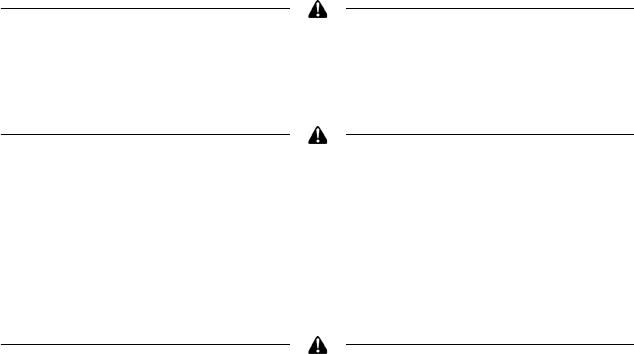
79
MAINTENANCE
Brake Fluid
Check brake fluid levels for both brake systems before each ride.
Always maintain brake fluid at the recommended level. Do not overfill.
The brakes should feel firm when they're applied. Spongy or weak
brakes may indicate a fluid leak or low fluid level. A low fluid level
may also mean that brake pads are worn and need to be replaced. Do not
operate the vehicle with spongy or weak brakes. See your dealer for ser-
vice.
Operating the vehicle with a spongy brake can result in loss of braking, which
could cause an accident. Never operate the vehicle with spongy-feeling brakes.
If the fluid level is low add DOT 4 brake fluid only. See page 119 for the
part numbers of Polaris products.
An over-full master cylinder may cause brake drag or brake lock-up, which could
result in serious injury or death. Maintain brake fluid at the recommended level.
Do not overfill.
Under normal operation, the diaphragm extends into the reservoir as
fluid level drops. If the fluid level is low and the diaphragm is not
extended, a leak is likely and the diaphragm should be replaced. To
ensure proper diaphragm operation, always fill the reservoir as needed
whenever the cover is loosened or removed. Do not overfill.
Never store or use a partial bottle of brake fluid. Brake fluid is hygroscopic,
meaning it rapidly absorbs moisture from the air. The moisture causes the
boiling temperature of the brake fluid to drop, which can lead to early brake fade
and the possibility of accident or severe injury. After opening a bottle of brake
fluid, always discard any unused portion.


















